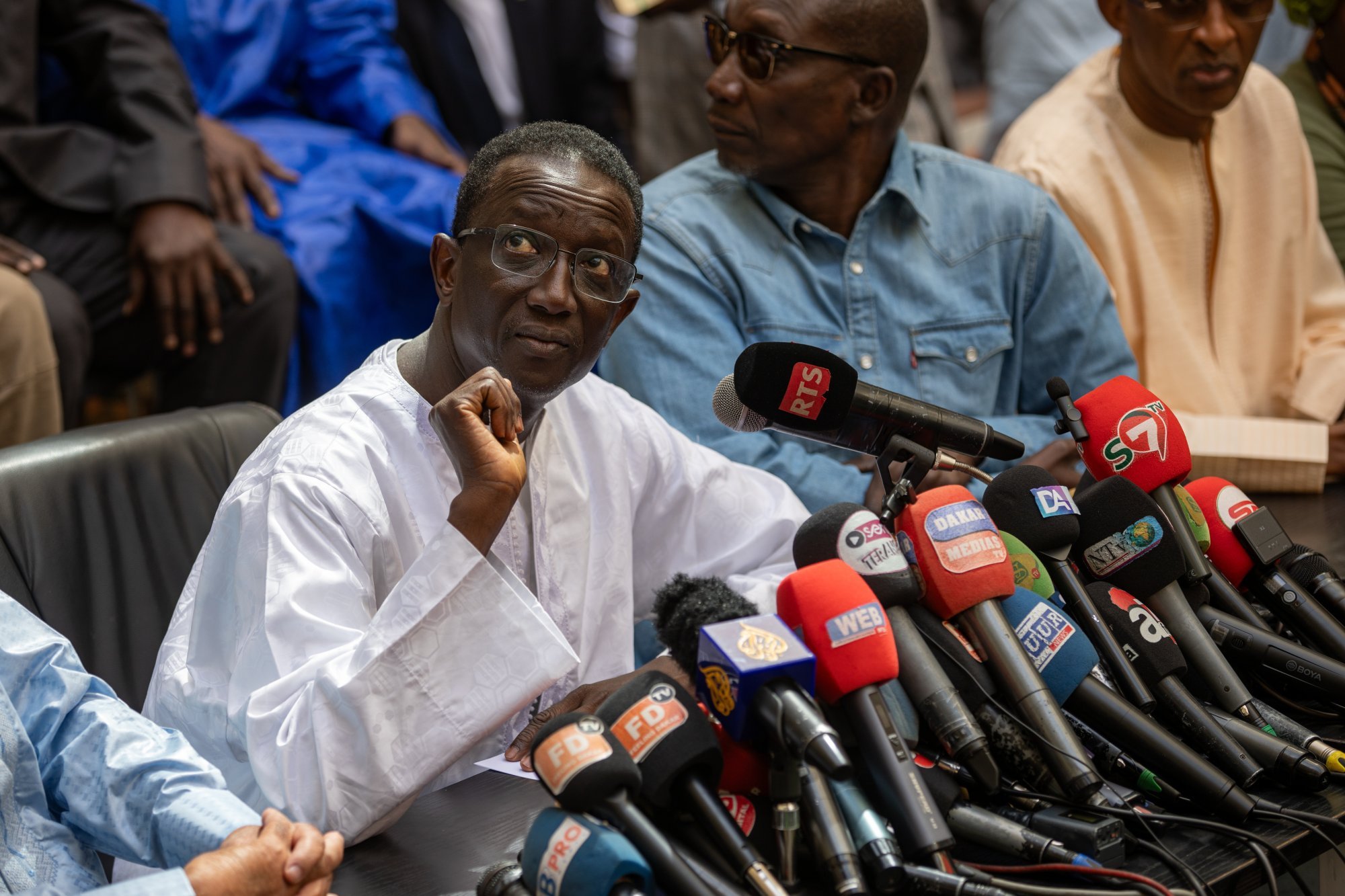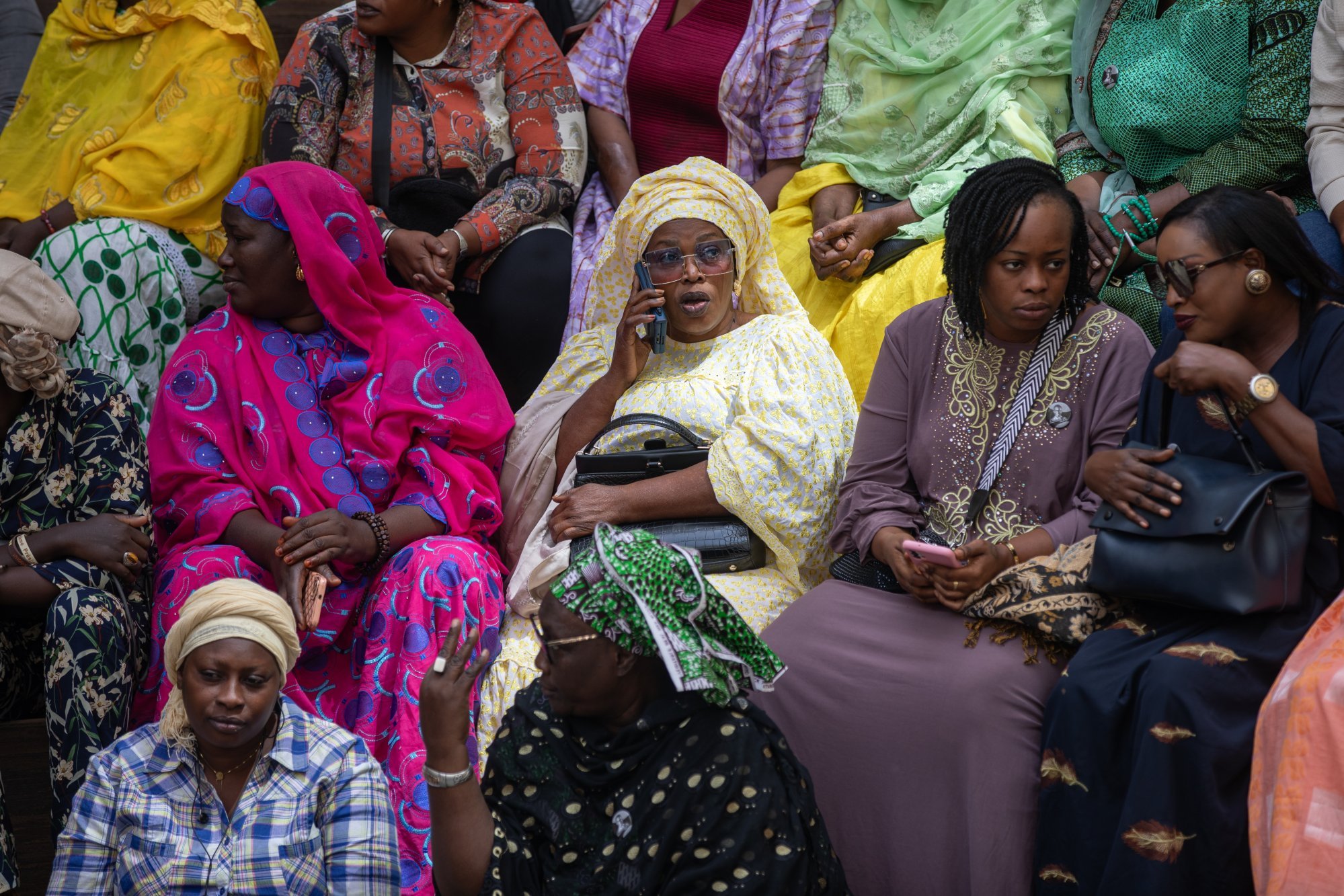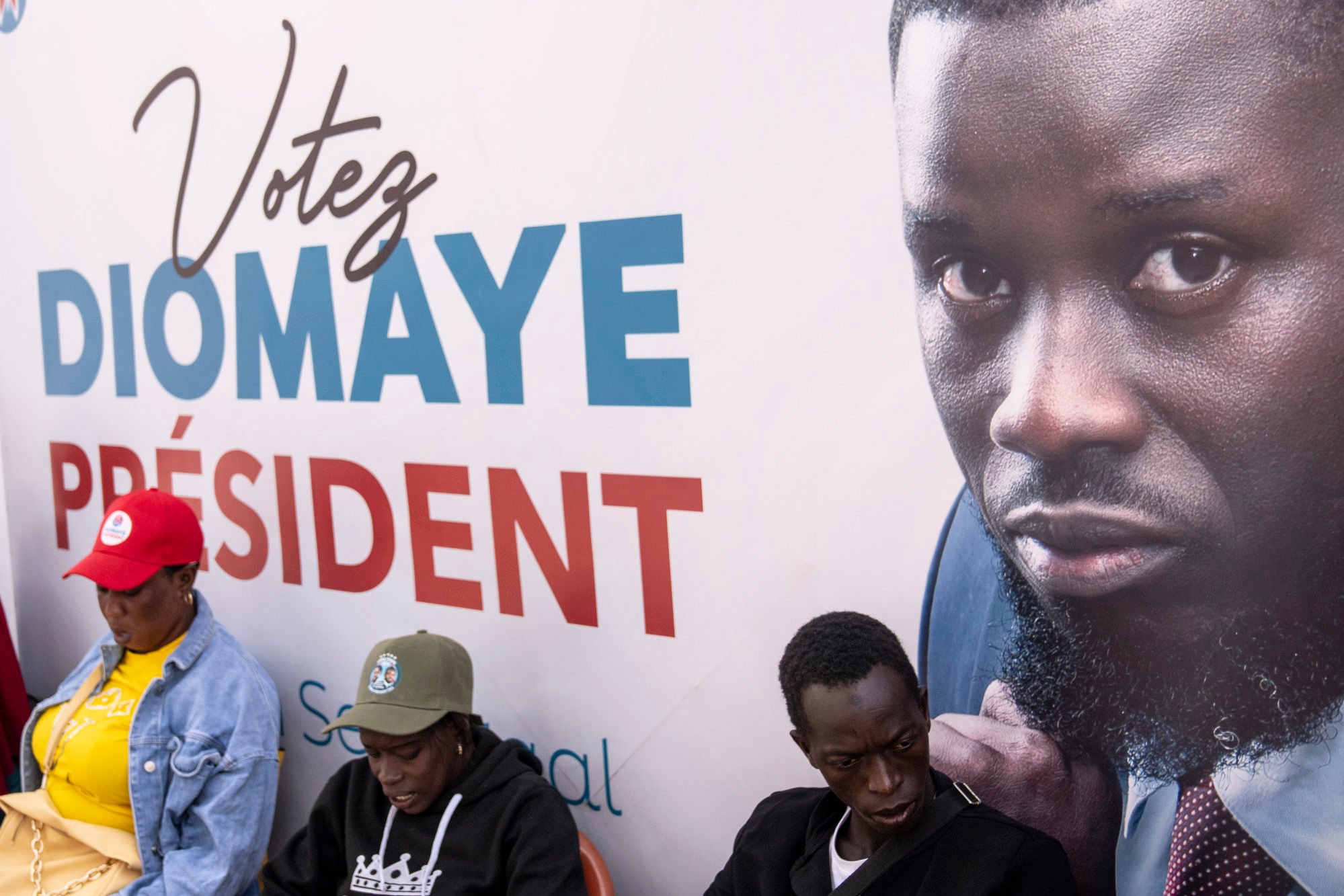
Senegal anti-establishment candidate Bassirou Diomaye Faye wins presidency
- Faye’s main opponent from the governing coalition, Amadou Ba, conceded the race and called Faye to offer his congratulations on Monday
- It marks stunning victory for the 44-year-old, who was only freed from prison 10 days before Sunday’s election
Anti-establishment candidate Bassirou Diomaye Faye was set Monday to become the youngest president in Senegal’s history after his rival conceded the race, triggering a political earthquake in the West African nation.
It marks a stunning victory for the 44-year-old, who was only freed from prison 10 days before Sunday’s election whose results are not yet official.
His main opponent from the governing coalition, Amadou Ba, 62, recognised Faye’s win and rang him to offer his congratulations.

Outgoing president Macky Sall, who did not stand after wins in 2012 and 2019, also congratulated him, hailing “a victory for Senegalese democracy”.
“The commitment of the Senegalese people to the democratic process is part of the foundation of our deep friendship and strong bilateral ties,” State Department spokesman Matthew Miller said, adding the US was “pleased that those elections proceeded”.
Faye has promised left-wing pan-Africanism and to renegotiate gas and oil contracts, with Senegal due to start production on recently discovered oil and gas reserves later this year.
The opposition candidate has never held a nationally elected position and has not yet spoken publicly since the vote, which followed three years of unrest and a political crisis.
“People are hungry for change when you see what is happening in this country in terms of corruption, non-respect of the law,” El Hadji Mamadou Mbaye, a political science lecturer and researcher at the University of Saint-Louis, told Agence France-Presse.
The person who most embodied the longed-for change was Ousmane Sonko, Mbaye added, referring to the firebrand opposition figurehead who was barred from running in the election but endorsed Faye as his replacement.
Senegal votes in tightly contested presidential race after months of unrest
Faye had appeared clearly ahead of former prime minister Ba, according to provisional results from individual polling stations published by local media and on social networks.
Official results are expected before the end of the week. An absolute majority was required for a first-round win.
Newspaper front pages had already congratulated Faye. “Happy Birthday Mister President,” said the Walf Quotidien, referring to Monday being Faye’s birthday.

Hundreds of jubilant Faye supporters had gathered at his campaign headquarters in the capital Dakar late Sunday.
“It’s a total revolution. Everything is going to change. Behaviourally, socially and financially, everything is going to change,” Coumba Diallo, a singer known as Queen Biz, enthused.
At least 10 of the 17 presidential candidates had earlier on Monday congratulated Faye in light of provisional results published by the media.
No major incidents were reported during the vote despite three years of bouts of unrest and a last-minute postponement of the election.
Senegal’s former PM Aminata Toure arrested: opposition
Faye was released from prison on March 14 under a rapidly passed amnesty law, together with Sonko.
He was jailed last year on charges linked to a stand-off between Sonko and the state. Sonko was barred from running in the presidential race due to a defamation conviction.
The anti-establishment candidate has pledged to restore national “sovereignty”, fight corruption and distribute wealth more equitably.
He has also promised to renegotiate mining, gas and oil contracts signed with foreign companies.
“I remain confident about the choice for the change that I am able to embody better than any other candidate,” Faye said as he voted on Sunday.

Ba pitched himself as the continuity candidate for the outgoing president.
Both contenders presented themselves as the best candidate for young people in a country where half the population is under 20.
Senegal was originally expected to vote on February 25, but an 11th-hour postponement by Sall triggered the worst political crisis in decades and violence that left four dead.
Around 7.3 million of Senegal’s 18 million population were eligible to vote.
Senegal leader postpones election in move critics label as ‘institutional coup’
It is Senegal’s third democratic handover from one elected leader to another since independence.
The head of the EU mission, Malin Bjork, said voting had taken place “calmly, efficiently and (in a) very orderly manner”.
Sall’s legacy includes mass arrests, persistent poverty, 20 per cent unemployment and thousands of migrants setting off on the perilous voyage to Europe each year.
Several episodes of unrest triggered partly by the stand-off between Sonko and the state have seen dozens killed and hundreds arrested since 2021.

.png?itok=arIb17P0)